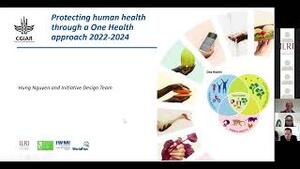
The Vietnamese double-vault composting latrine: Fertilizer source or health risk?
Abstract
Human excreta are rich in plant nutrients, so many farmers in Vietnam use them to fertilize their crops and in raising fish. But they also contain dangerous pathogens: bacteria, viruses, protozoa, and the eggs of intestinal parasites. Exposure can pose a health risk to farmers, their families, as well as consumers.Urine is generally free of pathogens, so can be diluted and used as fertilizer directly. But the faeces have to be composted to kill the pathogens. Around one-fifth of households in Vietnam use a double-vault latrine that collects the faeces and allows them to decompose before spreading the resulting compost on their gardens and fields.What are the benefits and risks of doing this? This issue of evidence for policy draws on research in Nghe An, Ha Nam, and Nam Dinh in northern Vietnam to answer this question.
Citation
Pham Duc Phuc, Hung Nguyen-Viet, Vu Van Tu, Zurbrugg, C. and Zinsstag J. 2013. The Vietnamese double-vault composting latrine: Fertilizer source or health risk? Evidence for Policy Series, Regional edition Southeast Asia 4. Pathumthani, Thailand: NCCR North-South.










